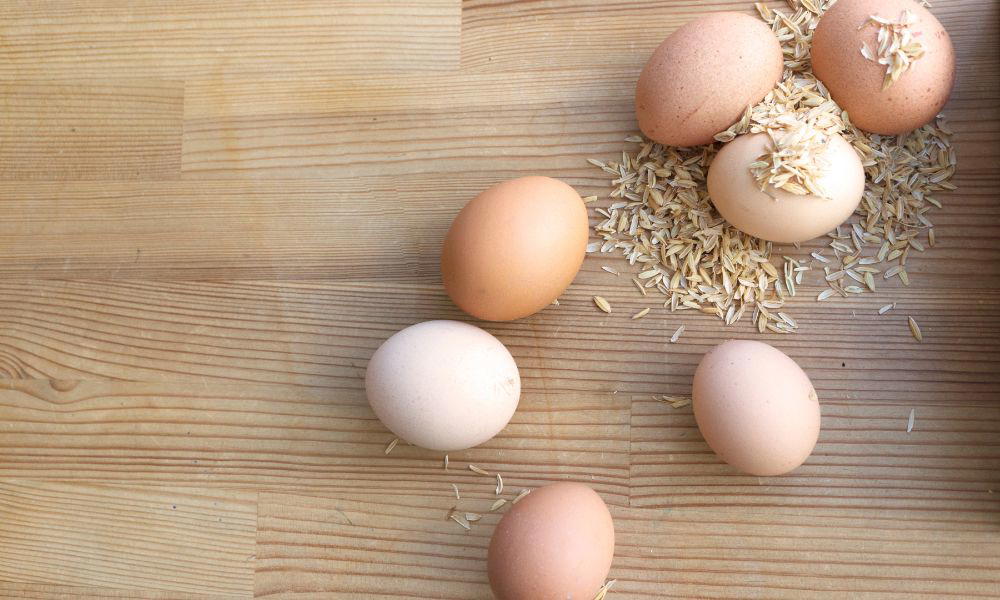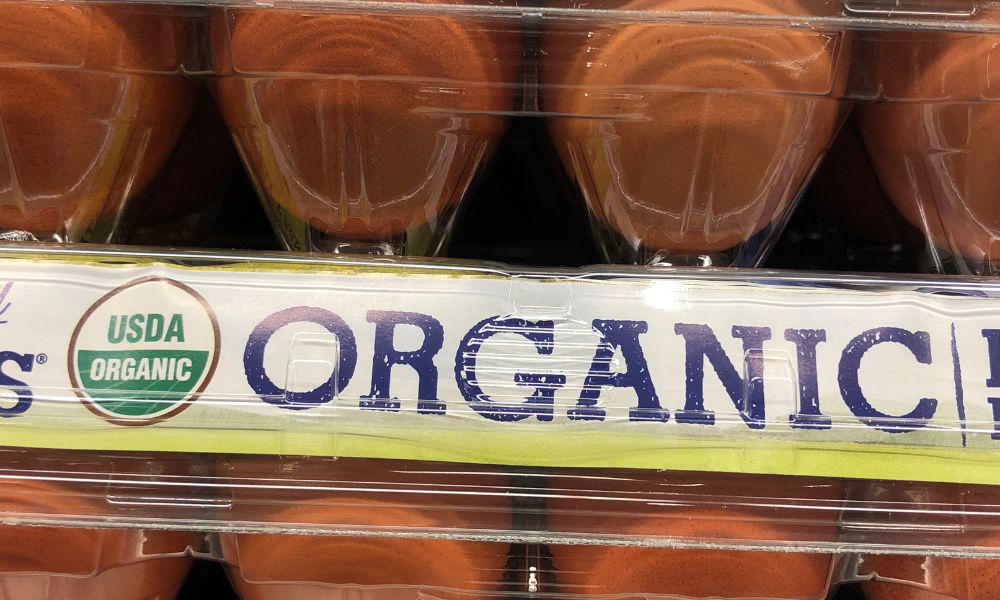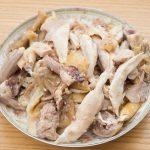Organic eggs have gained popularity over the years, thanks to their superior taste, nutritional benefits, and adherence to responsible farming practices. However, it is essential to ensure that the eggs we consume are fresh and safe. This article will delve deep into the world of organic eggs, discussing their shelf life, freshness, and proper storage methods.

Understanding Organic Eggs
Let’s kick off our eggciting journey with some basic understanding of organic eggs and what makes them different from conventional eggs. Organic eggs are produced by hens raised on certified organic feed, which is free of chemicals, pesticides, and genetically modified organisms (GMOs). These hens are allowed to roam freely and receive natural sunlight, contributing to the better quality of their eggs.
The Differences between Organic, Free-Range, and Conventional Eggs
To help you grasp the concept clearly, let’s take a quick look at the differences between organic, free-range, and conventional eggs.
- Organic eggs: Produced by hens fed organic, non-GMO feed, and given access to the outdoors. Hens are not treated with antibiotics or hormones.
- Free-range eggs: Produced by hens with access to the outdoors, but not necessarily fed organic feed.
- Conventional eggs: Produced by hens that are usually confined to small cages and fed GMO-containing feed. Antibiotics and hormones may be administered.
The Process Behind the Production of Organic Eggs
The organic eggs production process follows strict guidelines set by the U.S. Department of Agriculture (USDA). These include providing hens access to fresh air and the outdoors, maintaining a specific hen-to-land ratio, and using only organic feed (free from synthetic fertilizers, pesticides, and GMOs). Antibiotics, hormones, and animal byproducts are also prohibited in organic egg farming.
Now that we’ve covered the basics, let’s move on to the freshness and quality of organic eggs.
Egg Freshness and Quality

How to Check Egg Freshness
When it comes to eggs, freshness is paramount. Here are three common tests to determine if your eggs are still fresh and safe to consume:
- The Float Test: Fill a bowl with water and carefully place the egg in it. If the egg sinks and lays flat, it is still fresh. However, if it stands upright or floats, the egg is past its prime and should be discarded.
- The Candle Test: Hold a flashlight (or candle) against the large end of the egg in a dark room. A fresh egg will have a clearly visible yolk and white, while an older egg will have a larger air cell and a more diffuse yolk and white.
- The Shake Test: Gently shake the egg near your ear. A fresh egg will not make any noticeable noise, but an old egg will produce a sloshing sound due to the air cell and liquid content inside.
Factors Affecting Egg Freshness
Freshness plays an essential role in determining the organic eggs shelf life. Various factors can affect the freshness and quality of eggs, including:
- Time: Eggs start to lose their freshness the moment they are laid. The longer the eggs sit, the more they deteriorate in quality.
- Temperature: Eggs should be stored at a consistently cold temperature, ideally below 40°F (4°C). Leaving eggs at room temperature can cause them to spoil more quickly.
- Humidity: Too much or too little humidity can negatively impact egg quality. Ideally, eggs should be stored at a humidity level of 70-80%.
Visual and Sensory Indicators of Egg Quality
Apart from the freshness tests mentioned above, you can also assess the quality of eggs by examining their appearance and consistency:
- Eggshell condition: Fresh eggs have smooth, clean, and crack-free shells. Discoloration, cracks, or an unusual odor can indicate spoilage.
- Egg yolk and egg white consistency: Fresh eggs have a firm, bright yellow yolk and a thick, clear white. A watery white or a flattened, pale yolk are signs that the egg has lost its freshness.
Proper Storage of Organic Eggs

Why Refrigeration is Essential for Eggs in the U.S.
While most European countries store their eggs at room temperature, U.S. regulations require eggs to be washed and sanitized before being sold. This process removes the natural protective coating, making the eggs more susceptible to bacteria like Salmonella. As a result, eggs in the U.S. must be refrigerated to maintain their freshness and safety.
Optimal Fridge Conditions for Storing Eggs
To ensure your eggs remain fresh and safe for consumption, storing them at the right temperature and humidity is crucial. The ideal temperature for organic eggs storage is below 40°F (4°C), with the optimal humidity level being around 70-80%. In addition, keep your eggs away from strong-smelling foods, as eggshells are porous and can absorb odors.
Correct Placement of Eggs in the Fridge
The old adage “don’t put all your eggs in one basket” might not apply here, but where you store your eggs in the fridge does matter. Avoid storing eggs on the fridge door, as temperature fluctuations caused by opening and closing the door can reduce their freshness. Instead, store your eggs in their original carton on an inner shelf, where the temperature remains more constant.
Now that we’ve covered the importance of proper storage, let’s dive into the actual lifespan of organic eggs in your fridge.
The Lifespan of Organic Eggs in the Fridge

Determining the “sell by,” “best by,” and “use by” dates
Understanding the labels on egg cartons can be confusing, but they are essential in determining the freshness and safety of the eggs. Here’s a breakdown of the common date stamps you might see on the packaging:
- “Sell by”: This is the last date the retailer can display the eggs for sale. The eggs are still safe to consume after this date, though they may experience a decline in quality.
- “Best by”: Also known as the “expiry date,” this indicates the date until which the eggs are expected to maintain their peak quality. It serves as a recommendation for consuming the eggs, but they might still be safe to eat for a short period after the date.
- “Use by”: This is the last date by which the eggs should be consumed for safety reasons. It’s best to avoid eating eggs past their “use by” date.
How Long Uncooked Organic Eggs Last in the Fridge
When stored properly, uncooked organic eggs can last in the fridge for up to 4-5 weeks after the date they were laid. This means that if the “sell by” date on the carton is still a couple of weeks away, you have even more time to enjoy your eggs.
Remember that open cartons of organic eggs storage temperature can greatly affect the freshness, so always store them in a closed container in the fridge to maintain their quality.
The Longevity of Hard-Boiled Eggs in the Fridge
When it comes to hard-boiled eggs, they have a shorter shelf life than their uncooked counterparts. Hard-boiled eggs, when stored in the fridge in a covered container, can last for up to a week. You can learn more about the shelf life of hard-boiled eggs in the fridge here.
Consuming Past-Date Eggs: Safe or Not?

Risks Associated with Consuming Expired Eggs
Eating expired or rotten eggs can lead to foodborne illnesses caused by bacteria like Salmonella. It is crucial to ensure the eggs you consume are fresh and safe, especially when it comes to vulnerable groups like young children, elderly people, pregnant women, and individuals with compromised immune systems.
Methods for Assessing if an Egg is Safe to Eat Post Expiry
If you find that your eggs are past their “sell by” or “best by” dates, employ the freshness tests and visual indicators mentioned earlier in the article to determine if they are still safe to eat. When in doubt, it’s always better to err on the side of caution and discard questionable eggs.
Minimizing Wastage and Maximizing Egg Usage
Meal Planning and Grocery Shopping Strategies
To reduce wastage and ensure you make the most of your organic eggs, consider the following strategies:
- Plan your meals in advance, incorporating dishes that require eggs.
- Buy only the number of eggs you know you will consume before they spoil.
- Purchase your eggs from a store with a high turnover rate, ensuring that you get the freshest eggs available.
Recipes that Use Up a Lot of Eggs
If you find yourself with a surplus of eggs and want to whip up something amazing, try some recipes that require multiple eggs. Examples include frittatas, quiches, omelets, egg sandwiches, and deviled eggs like these. Not only are these dishes delicious, but they also help you make the most of your eggs before they go bad.
Conclusion: Staying Fresh with Organic Eggs
Choosing organic eggs is a great decision for your health, taste buds, and the environment. By understanding the shelf life of organic eggs, checking for freshness, and practicing proper storage, you can ensure you enjoy your eggs at their peak quality and flavor.








